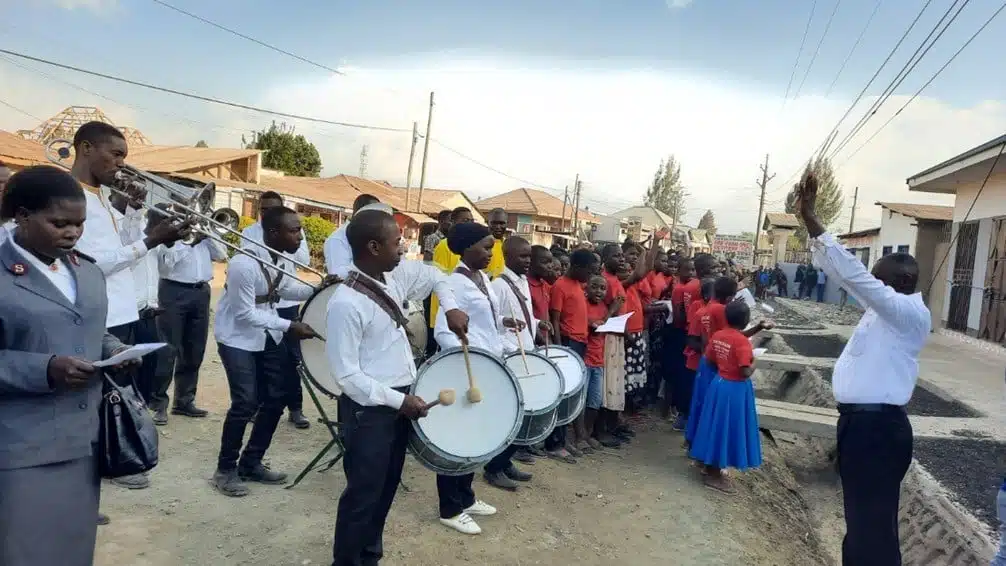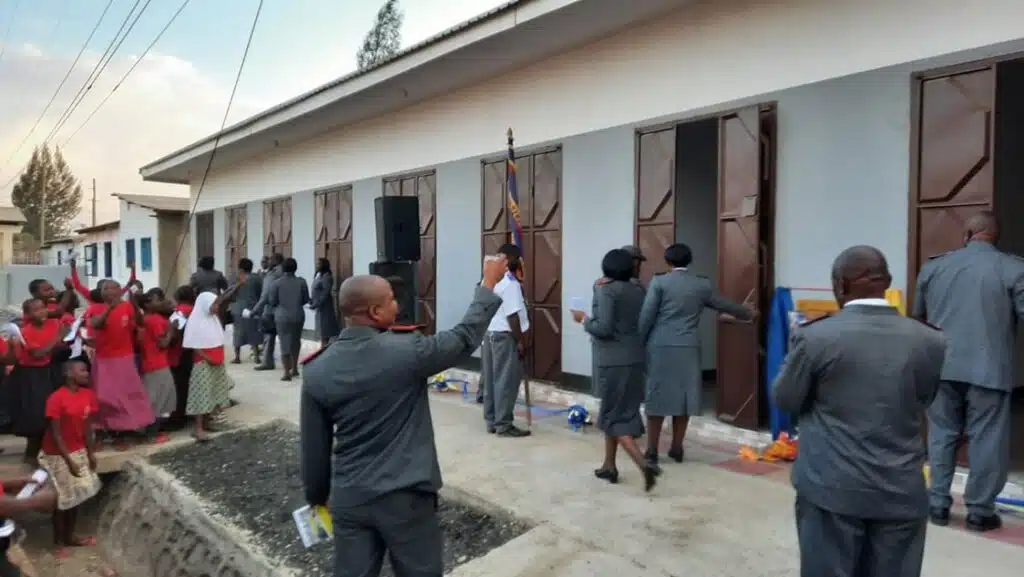Almost 700 million people around the world survive on less than $2.15 a day. Having a reliable and sufficient income is the foundation to improving individual lives, local communities, and ultimately the whole world. In other words, economic development is the gift that keeps on giving.
In a remarkable journey, Charity Alliance member The Salvation Army World Service Office (SAWSO) developed an unused strip of land in Tanzania into a thriving hub of commerce, illuminating a path toward economic empowerment for years to come. Read the story below and support these efforts by donating to SAWSO through your workplace.
The following article was originally written by SAWSO and published on their website. It is reposted with permission from the organization. To view the article directly, click here.
In the far southwestern edge of Tanzania, nestled in the heart of Mbeya, The Salvation Army had a vision beyond the walls of its church and educational training center. They saw potential in an undeveloped strip of land, a hidden gem along a bustling road. This vision aimed not only to uplift the local community but also to sustain their mission in a unique way.
For The Salvation Army in Tanzania, the challenge was multifaceted. They desired to generate additional resources to make their school accessible to a low-income population. Simultaneously, residents in the community utilized the vacant space for informal roadside vending. They sold various items like cooking oil, flour, rice, and other groceries; offered services, and eked out a living amidst the unpredictable elements.
The Salvation Army took an unconventional approach by harnessing the potential of their local Salvation Army training college students. The students embarked on a journey of community engagement and market research, canvassing the area, talking to the sellers about their needs and aspirations. They discovered that these entrepreneurs craved legitimacy, security, and a proper selling space but couldn’t afford new construction.
This grassroots market research formed the foundation of the project, identifying a waiting list of sellers eager to have their legitimate shops. With The Salvation Army World Service Office’s (SAWSO) funding, 10 shops with storage and bathrooms were constructed, exceeding initial expectations.
In September 2021, a grand opening ceremony marked the dawn of a new era. Dilapidated structures were replaced by modern, bustling shops, and even before construction was completed, 21 applications poured in for the 10 available spots, validating the market research.


Economic Impact:
The newly constructed shops were 100% occupied from day one, and the local community rejoiced. The city even paved the street, signaling the dawn of legitimate business on the Shukrani shops in Tanzania.
These shops are not just a source of pride but also a source of passive income. The rent generated from these shops is expected to recover the initial investment in less than five years, all of which will support The Salvation Army training school. But the project’s success didn’t stop there. It demonstrated the viability of this model in other locations, and plans are underway to replicate this success. The local government regulations now prohibit street vending, increasing the demand for rented shops.
SAWSO recognized the strength of this methodology and is entering a second phase of the project, constructing six more shops to meet the growing demand for selling spaces. This expansion showcases the capacity and impact of this initiative.
In a remarkable journey from an unused strip of land to a thriving hub of commerce, the Shukrani shops stand as a testament to the power of community engagement, innovative thinking, and The Salvation Army’s commitment to making a difference. This venture has not only empowered local entrepreneurs but also created a sustainable source of income to support The Salvation Army’s mission in Tanzania, illuminating a path toward economic empowerment for years to come.


